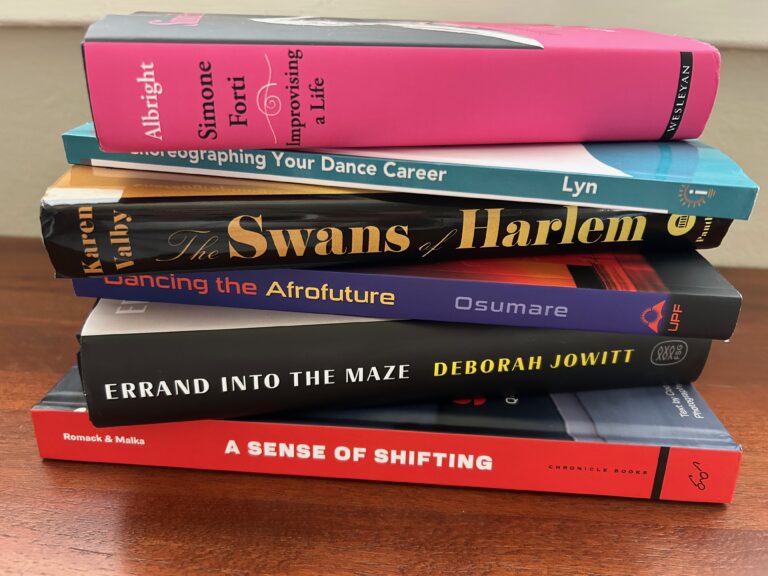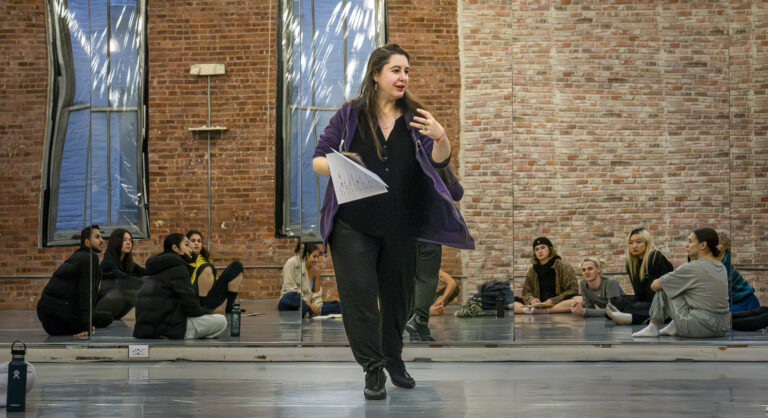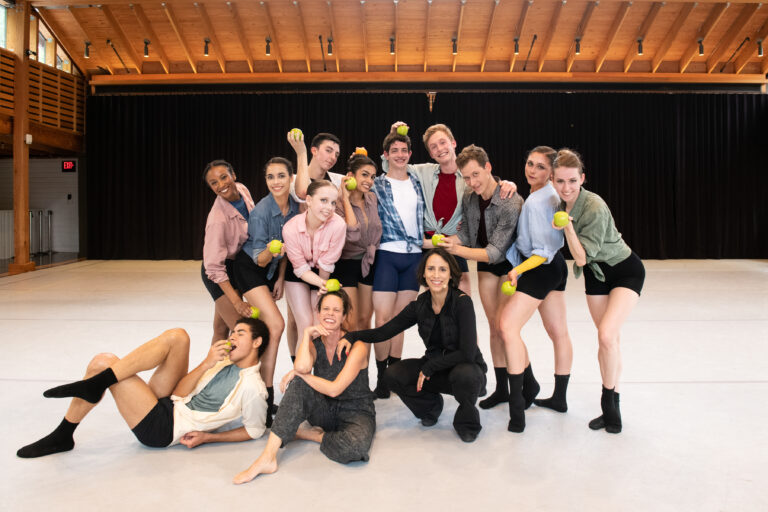
If you made it through several cuts but didn’t land a contract, you’re probably wondering what went wrong. It’s perfectly acceptable to ask for feedback—if you go about it the right way. Here’s how company and casting directors want to hear from you so you’ll be remembered for your dancing (not for nagging).
DON’T Follow Up Prematurely

If you get cut in the first round, it’s not necessary to follow up. Photo by Jim Lafferty for Pointe.
If you didn’t make the first cut, don’t follow up. Andrea Zee, a casting director for Broadway musicals and tours, says she can’t be helpful unless you’ve made it through several cuts. “It’s just too hard with the number of people we’re seeing to comment on your performance in the initial round,” she says.
How you get in touch depends on what’s most appropriate at that particular company, so do your homework. Some places, like Colorado Ballet, set up an online contact form, while others prefer you email the director or an administrator. At Martha Graham Dance Company, artistic director Janet Eilber says you may hear from her first. “We try to alert the final-round dancers to our recommendations—whether they need more training, if they should audition for Graham 2, and whether or not we see them ultimately joining the company—at the end of the audition, before they leave,” says Eilber.
DO Get Specific
 Be specific in your follow-up email. Photo Courtesy Stock Snap
Be specific in your follow-up email. Photo Courtesy Stock Snap
If you’re following up by email, Colorado Ballet artistic director Gil Boggs suggests writing something like “I made it through the entire process, and my number was 12” before inquiring about feedback. Zee says it’s a joy to get a question that shows you’ve really thought about the role and expect to hear that there’s an area where you need to improve. “Ask about some aspect of your Fosse technique or how you can bring more humor to your movement. Not ‘What went wrong during the second combination?’ ” she says. When you do receive a response, investigate it further on your own. “If I say ‘It was your port de bras,’ don’t email back to ask ‘Well, was it my elbow?’ ” says Boggs.
DON’T Make Excuses
Following up isn’t a chance to explain why you didn’t perform your best. Eilber says she doesn’t need to hear that you were sick or injured or that you’ll be in better shape soon—it only tells her that you came to the audition when you weren’t ready.
DO Share What’s Next for You
 Directors may be interested in what you’ve been up to since your audition. Photo by Jim Lafferty for Pointe.
Directors may be interested in what you’ve been up to since your audition. Photo by Jim Lafferty for Pointe.
“Update me on what you’re dancing this year,” says Boggs, “so I can think about the skills you’re likely working on and if that matches up with what the company has coming up.” You can also share the name of a coach or mentor. “That gives me the opportunity to touch base with someone who knows more about you than I can find out in an audition,” he says.
DO Know When to Take “No” for an Answer
“I make it a point to get back to each person if feedback is appropriate,” says Zee, “but sending an email every week crosses the line from proactive to worrisome.” You don’t want to be remembered for the wrong reasons, and casting directors keep careful files, warns Zee. But if you’ve kept in touch the right way, “I just might be able to call you back six months or a year later with a show you’d be perfect for.”



